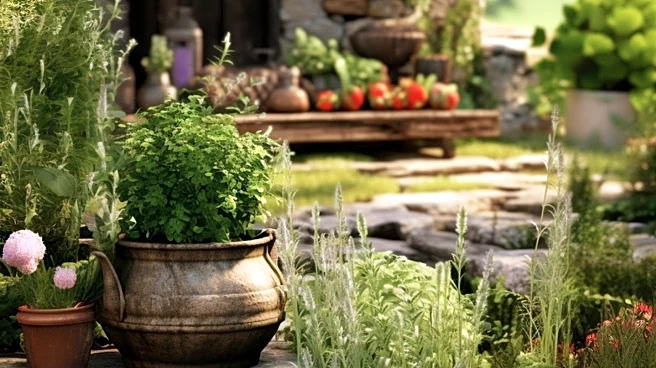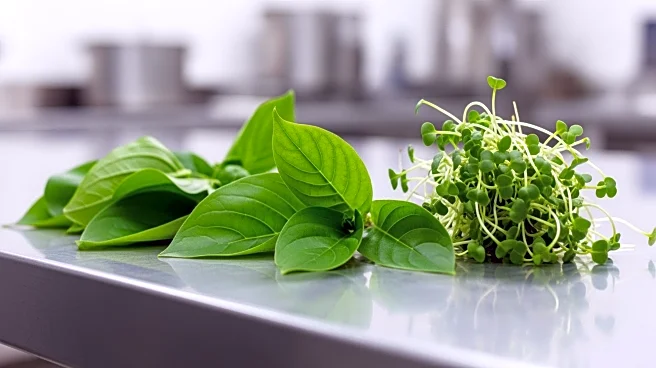What is the story about?
What's Happening?
In Berlin, Martin Rötzel has established 'The Monk Garden,' a modern take on medieval monastic gardens. The garden features 150 to 200 types of herbs, leaves, and trees, many of which are rare in German supermarkets. Rötzel's initiative aims to supply high-end restaurants with unique flavors and organize workshops on using herbs for culinary and medicinal purposes. The garden reflects a revival of traditional knowledge about plants and their uses, which Rötzel has cultivated since childhood.
Why It's Important?
The Monk Garden represents a growing interest in sustainable and locally sourced food, aligning with broader trends in the culinary industry. By reviving traditional plant knowledge, Rötzel contributes to cultural preservation and offers alternatives to industrialized food production. This initiative could inspire similar projects, promoting biodiversity and ecological awareness. It also highlights the potential health benefits of using herbs, which could influence consumer choices and dietary habits.
Beyond the Headlines
Rötzel's work underscores the cultural and historical significance of monastic gardens, which were once centers of knowledge and healing. The garden's success may encourage a reevaluation of modern agricultural practices and the importance of preserving traditional plant varieties. It also raises questions about the loss of plant knowledge in contemporary society and the role of education in restoring this heritage.















